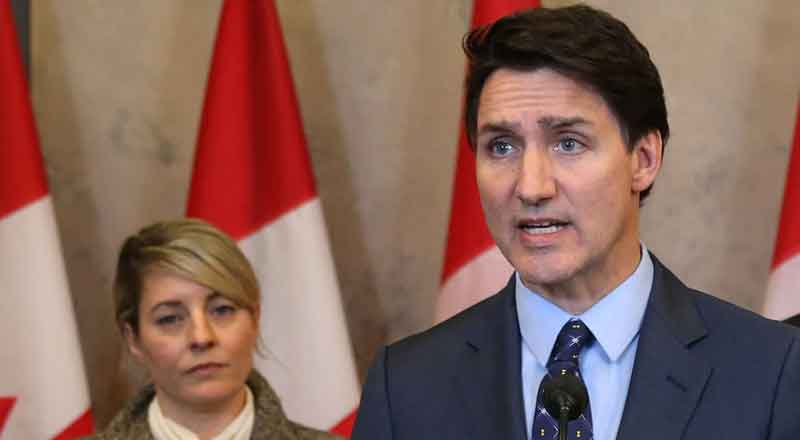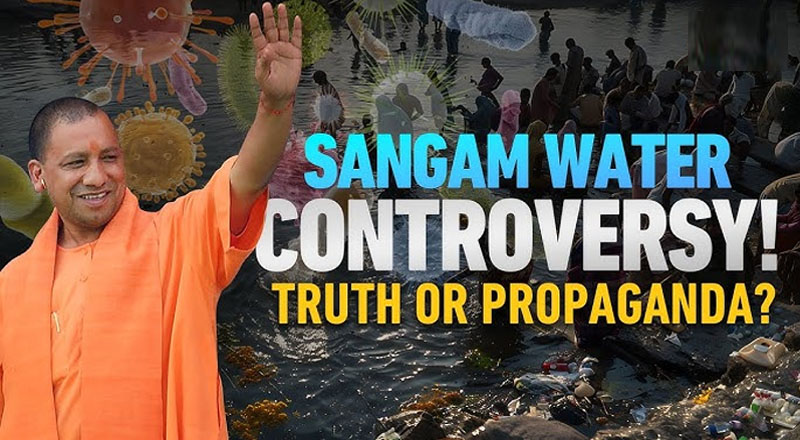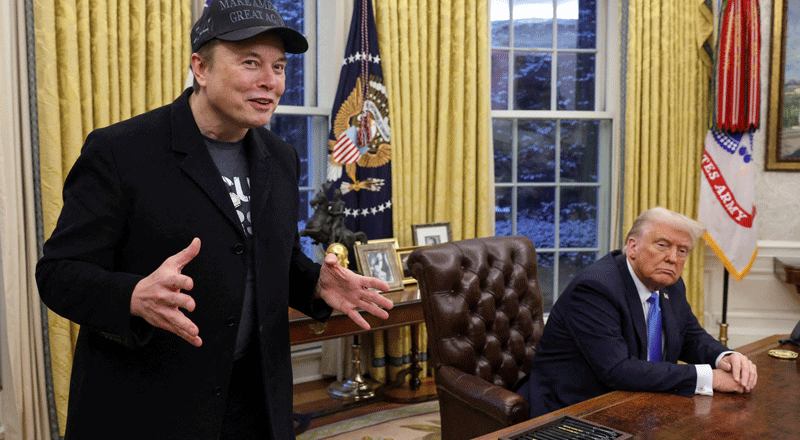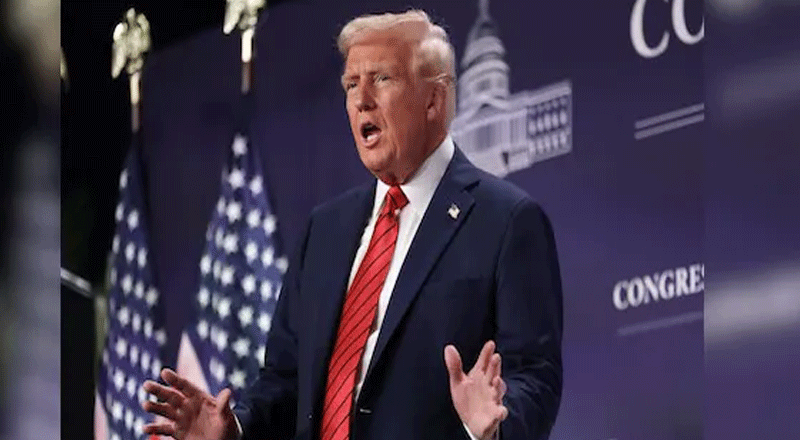The Complex Indo-Canadian Relationship
The diplomatic relationship between India and Canada has long been marked by economic partnerships and shared democratic values, but in recent years, tensions have escalated due to issues surrounding the Khalistan separatist movement. India has consistently expressed concerns about Canada providing a platform for pro-Khalistani activists, which it sees as a threat to its territorial integrity. The killing of Khalistani separatist Hardeep Singh Nijjar in Canada in 2023 brought these tensions to a boiling point, culminating in an international diplomatic showdown.
In September 2023, Canadian Prime Minister Justin Trudeau accused the Indian government of being involved in Nijjar’s assassination, leading to an escalation in diplomatic hostilities. However, recent revelations by Trudeau have added a new layer of complexity to the situation.
Trudeau’s Startling Admission: No Hard Evidence
In a public inquiry on foreign interference in Canada’s electoral processes, Justin Trudeau made a significant admission that has raised questions about the foundation of his earlier allegations. He revealed that Canada does not possess “hard evidentiary proof” linking Indian government agents to Nijjar’s killing. According to Trudeau, his accusations were based on intelligence from Canadian sources and potentially from members of the Five Eyes intelligence alliance, which includes Canada, the United States, the United Kingdom, Australia, and New Zealand.
This revelation has been seen as a softening of the Canadian stance after months of hardline rhetoric. Trudeau explained that although the intelligence was “incredibly clear” about India’s involvement, it did not amount to the kind of concrete evidence typically required for international accusations of this magnitude.
The Role of the Five Eyes and Intelligence Sharing
The Five Eyes network, known for its extensive surveillance and intelligence-sharing capabilities, played a key role in Canada’s understanding of the situation. According to Trudeau, intelligence from the alliance pointed to Indian government agents’ involvement in Nijjar’s death. This prompted the Canadian government to take the issue seriously, even though it lacked conclusive evidence.
Trudeau also alleged that Indian diplomats were collecting information on Canadians critical of the Modi government, passing this information to senior Indian officials and, in some cases, criminal organizations like the Lawrence Bishnoi gang, which has been implicated in violence against pro-Khalistani activists in Canada.
The Diplomatic Fallout: Tit-for-Tat Expulsions
The accusations against India led to a sharp deterioration in diplomatic relations. Canada expelled several Indian diplomats, and India retaliated by expelling Canadian diplomats and recalling its High Commissioner to Canada, Sanjay Kumar Verma. Trudeau accused India of stonewalling Canada’s attempts to investigate Nijjar’s murder, while India consistently rejected the claims as unfounded.
India’s Ministry of External Affairs (MEA) responded forcefully, stating that Canada had provided no evidence to substantiate the accusations. In a strongly worded statement, the MEA placed the blame for the diplomatic fallout squarely on Trudeau’s government, calling his allegations “preposterous imputations” driven by domestic political considerations.
The Nijjar Case: Terrorist or Community Activist?
At the heart of this diplomatic row is a fundamental disagreement over Nijjar’s identity. The Indian government had designated Nijjar as a terrorist in 2020, accusing him of involvement in violent separatist activities aimed at establishing a Khalistani state. Nijjar’s supporters in Canada, however, viewed him as a community leader advocating for Sikh rights.
This disagreement underlines the larger tension between the two nations. While Canada allows freedom of speech and assembly, India views the Khalistan movement as a serious security threat. Trudeau’s admission that there is no hard evidence linking Indian agents to Nijjar’s killing has now intensified the debate over the legitimacy of his government’s initial claims.
Canada’s Missed Opportunity: The G20 Summit Incident
Trudeau also revealed that Canada had considered going public with the allegations during the G20 summit in New Delhi in September 2023 but chose not to, as the intelligence at the time did not meet the threshold of hard evidence. During the summit, Trudeau confronted Indian Prime Minister Narendra Modi with the allegations, but Modi dismissed the claims and expressed concerns about the activities of individuals in Canada critical of the Indian government.
This exchange highlights the diplomatic tightrope that both countries have been walking. For Canada, balancing its commitment to free speech and democratic rights with the growing concerns over Khalistani separatism has been challenging. For India, protecting its territorial integrity remains a top priority, and it views Canada’s leniency toward pro-Khalistani activists as unacceptable.
India’s Strong Rejection: Vote Bank Politics?
India’s response to Trudeau’s accusations has been firm and unequivocal. The Indian government has rejected all claims of involvement in Nijjar’s killing, framing the issue as part of Trudeau’s domestic political agenda aimed at appeasing certain voter segments. According to the Indian government, Canada has long ignored Indian concerns about Khalistani extremism on its soil, allowing separatists to operate with impunity under the guise of free expression.
New Delhi has consistently criticized Canada’s handling of the Khalistan issue, accusing it of failing to take meaningful action against extremists. Trudeau’s recent admission may have provided India with a stronger position in this diplomatic battle, as it underscores the lack of concrete evidence behind Canada’s accusations.
A Diplomatic Standstill
Despite Trudeau’s clarification, the core issue remains unresolved. As Canadian journalist Daniel Bordman noted, the disagreement centers on differing perspectives of Nijjar’s role—was he a terrorist or a community activist? Until this fundamental question is addressed, the diplomatic standoff is likely to continue.
While Trudeau’s admission could be seen as a step toward de-escalation, it also raises questions about the Canadian government’s handling of the situation. The strained relationship between India and Canada serves as a reminder of the complex interplay between domestic politics, international relations, and the fight against extremism.
In the end, the dispute highlights the delicate balance both nations must strike in navigating their differences, especially as global politics become increasingly interconnected and intelligence-based decisions continue to shape foreign policy.
(With inputs from agencies)





